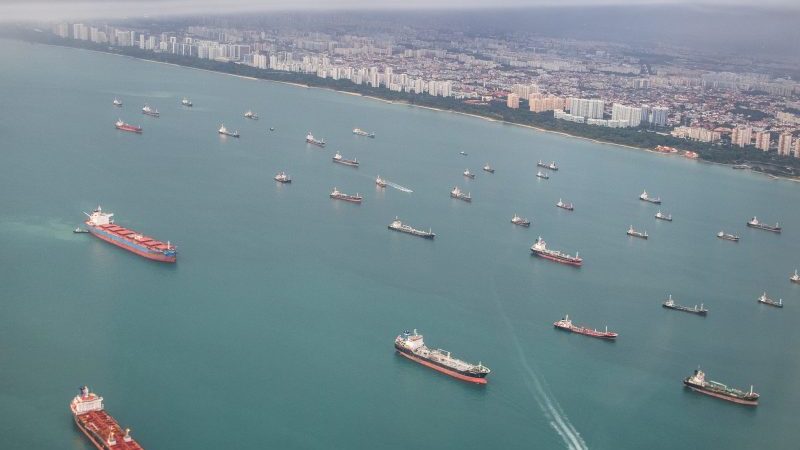For the first time ever, there is a climate target for shipping, after a tense week of talks at the International Maritime Organization (IMO).
It is a compromise between a concerted push by Pacific islands and Europe for high ambition and strong resistance to any emissions cap at all from the US and emerging economies.
While nobody was thrilled by the outcome, it sends a signal to the industry to start investing in clean technology and low carbon fuels.
Big fights are still to come, not least on reconciling the principles of the UN climate and shipping bodies. The first puts the onus on the developed world to lead on emissions cuts, while the second demands a level playing field for all ships, regardless of where they are registered.
Under the deal, the IMO must apply both principles as it develops measures to put the climate target into practice, Sara Stefanini reports.
The regulator also agreed to consider a ban using on heavy fuel oil in the Arctic, in response to concerns about its environmental impacts.
Some personal news. We are delighted Climate Home News has been shortlisted for a Drum Online Media Award, in the Specialist/local news site of the year category.
China reshuffle
China is boosting staff levels at its environment ministry from 300 to 500, as it absorbs functions including climate regulation and international negotiations from other government agencies.
The restructure is intended to make environmental governance more joined-up, Li Jing reports from Beijing. But some are concerned it risks downgrading China’s climate diplomacy, which previously came under the influential National Development and Reform Commission.
Climate conversations
The shipping sector has the technology to go green, it just needs the policy signal – James Mitchell, Carbon War Room
We need long-term strategies to meet the challenge of climate change – Patricia Espinosa, UN Climate Change
Argentina G20
Argentina has dropped carbon pricing from the G20 agenda for the climate sustainability group meeting in Buenos Aires next week.
Instead, it will focus on encouraging member states to develop long-term strategies for cutting carbon from their economies.
Sources close to the previous German presidency of the forum expressed disappointment that momentum on carbon pricing had stalled, Annemarie Botzki reports.
Vertical forest
In a charming interview republished from America Oggi, the architect Stefano Boeri reflects on how his famous tree-covered skyscrapers in Milan have fared.
All 800 trees planted in 2012 are still thriving and the new ecosystem has attracted swallows, he says, expressing hopes that the concept will spread to cities around the world.
Best of the rest
- US environment chief Scott Pruitt’s ideological assault on green rules has done his standing with Republicans no harm, but could a growing scandal over alleged abuse of government funds end his career at the EPA?
- Can you limit global warming to 1.5C without relying on unproven negative emissions technology? Yes, if people are willing to change their lifestyles and eat low-meat diets, according to Dutch researchers
- The UN Development Programme is backing an initiative launched to support countries in developing long-term climate strategies, featuring expert advice from the likes of Nick Stern and Laurence Tubiana.
- New Zealand PM Jacinda Ardern has banned new offshore oil and gas exploration, citing the industry’s climate impact. It is the latest in a handful of policy moves globally to clamp down on fossil fuel supplies, rather than rely on cutting demand.
